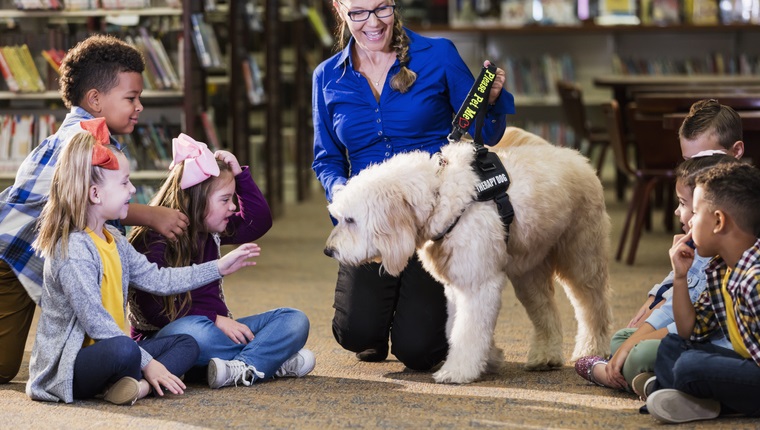Attention-deficit/hyperactivity disorder or ADHD is one of the most common childhood disorders that currently lacks treatment to directly and fully deal with the issue. That’s what spurred researchers at UCI Health, led by child development specialist Sabrina Schuck, to turn to therapy dogs.
Schuck and her colleagues explored the benefits of therapy dogs on children with ADHD. Specifically, they wanted to test the symptoms of ADHD through interactions with therapy dogs.
The idea comes from the benefits of therapy dogs in treating other conditions. There have been cases wherein therapy dogs have helped alleviate the symptoms of PTSD among soldiers or increased the quality of life of emergency service providers. Furthermore, research on therapy dogs has shown the benefits of touch and companionship as a way to battle certain conditions.
To examine any possible benefit with ADHD, Schuck and her colleagues explored randomized and controlled trials in a sample of 88 children aged seven to nine. The five-year study tapped children who have been diagnosed with ADHD but have not received medication for it.
Using Dog-Themed Psychosocial Skills Training
Schuck and the other researchers used dog-themed psychosocial skills-based training. They taught the young participants how to care for the dogs. In each of the two weekly sessions, the kids played with the dogs in a semi-structured set-up. They played Frisbee, groomed them, and also performed agility exercises. A second layer of the experiment focused on building the children’s social skills.
For twelve whole weeks, the children learned how to train the animals. Additionally, they created their own lesson plans to teach simple commands like sit, stay, and come. The kids trained puppies for the last three weeks.
Even the varying tasks did not distract the children from the activities. “On the contrary, it takes a lot to engage kids who are hyperactive when doing activities they don’t necessarily prefer. Working with the dogs seems to motivate children to participate in tasks they would otherwise avoid,” said Schuck.
Children who interacted with and trained dogs had reduced symptoms of inattention and improved their social skills and self-esteem. However, hyperactivity and impulsivity remained at the same level. “These findings are important because hyperactivity and impulsivity tend to decline with age, while problems with attention tend to persist through life and are the most challenging to treat,” revealed Schuck.
Good Improvement, Not An Alternative
Even with some development, dog-themed therapies should not be relied upon as a main treatment alternative. Research on ADHD therapies and treatment continually changes. Even so, it’s good to note potentially supplemental programs for reducing symptoms of the condition.
Schuck and her team are working on understanding the benefits of dog-themed therapies. Polishing these strategies may help in effectively implementing these animal-assisted interventions in school settings.
What do you think about this new finding? Do you think dog-themed therapies will provide a great help to individuals with ADHD? Let us know your thoughts below!
Related articles:
New Research Says These 3 Things Might Change Your Dog’s Personality










